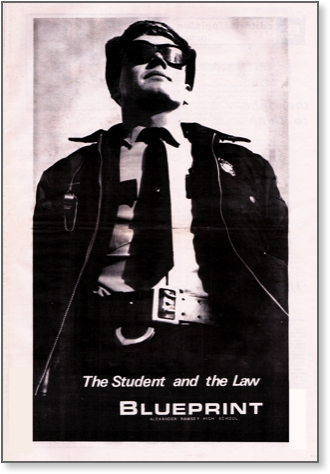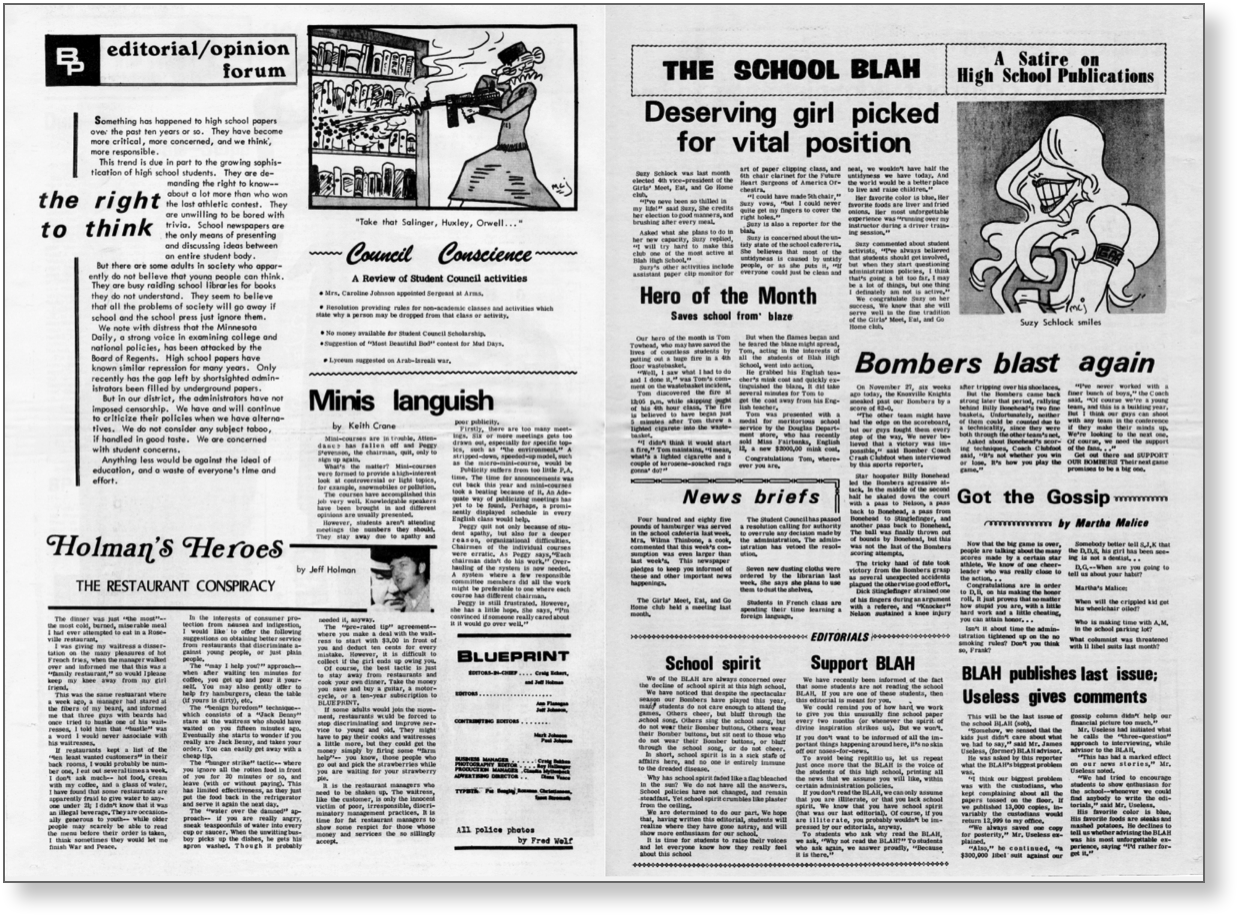March 13, 1970
Riding along with the Roseville police
We take a ride with the Roseville police in the March 13 issue’s special section on the Student and the Law. Cruising side streets and parking lots in an unmarked squad car, the three-hour ride with a Roseville police Sergeant is uneventful -- a burglar alarm is triggered accidentally at a Roseville ski shop, a couple parked behind a church is surprised by a police flashlight and told to move on. But the comments by officers interviewed reflect what was happening in America in the 1960s, which saw police-community relations at a breaking point after riots Chicago, Watts and North Minneapolis.
Like police departments around the country, Roseville sent its officers to sensitivity training in the late 60s, which included conversations with minority groups. “It isn’t easy for you to sit and listen to a black leader, and hear him say we’re going to tear you apart,” confides one Roseville officer. Those sessions, he says, served to polarize the groups even more. Yet Roseville in 1970 seems insulated from the social issues that plague the urban core. “The worst enemy of the policeman is boredom. Most the time there isn’t that much happening,” he says.
The section on the Student and the Law includes a review of the rights of juveniles with a Minnesota Civil Liberties Union attorney and a profile of a troubled Roseville student arrested repeatedly for car theft, drunk driving and other crimes.
The theme of student rights and challenging authority dominates this edition -- events made it inevitable. Radical activist David Pence returned to Ramsey to confront the school administration with the support of a petition circulated by members of the student council.
Like police departments around the country, Roseville sent its officers to sensitivity training in the late 60s, which included conversations with minority groups. “It isn’t easy for you to sit and listen to a black leader, and hear him say we’re going to tear you apart,” confides one Roseville officer. Those sessions, he says, served to polarize the groups even more. Yet Roseville in 1970 seems insulated from the social issues that plague the urban core. “The worst enemy of the policeman is boredom. Most the time there isn’t that much happening,” he says.
The section on the Student and the Law includes a review of the rights of juveniles with a Minnesota Civil Liberties Union attorney and a profile of a troubled Roseville student arrested repeatedly for car theft, drunk driving and other crimes.
The theme of student rights and challenging authority dominates this edition -- events made it inevitable. Radical activist David Pence returned to Ramsey to confront the school administration with the support of a petition circulated by members of the student council.
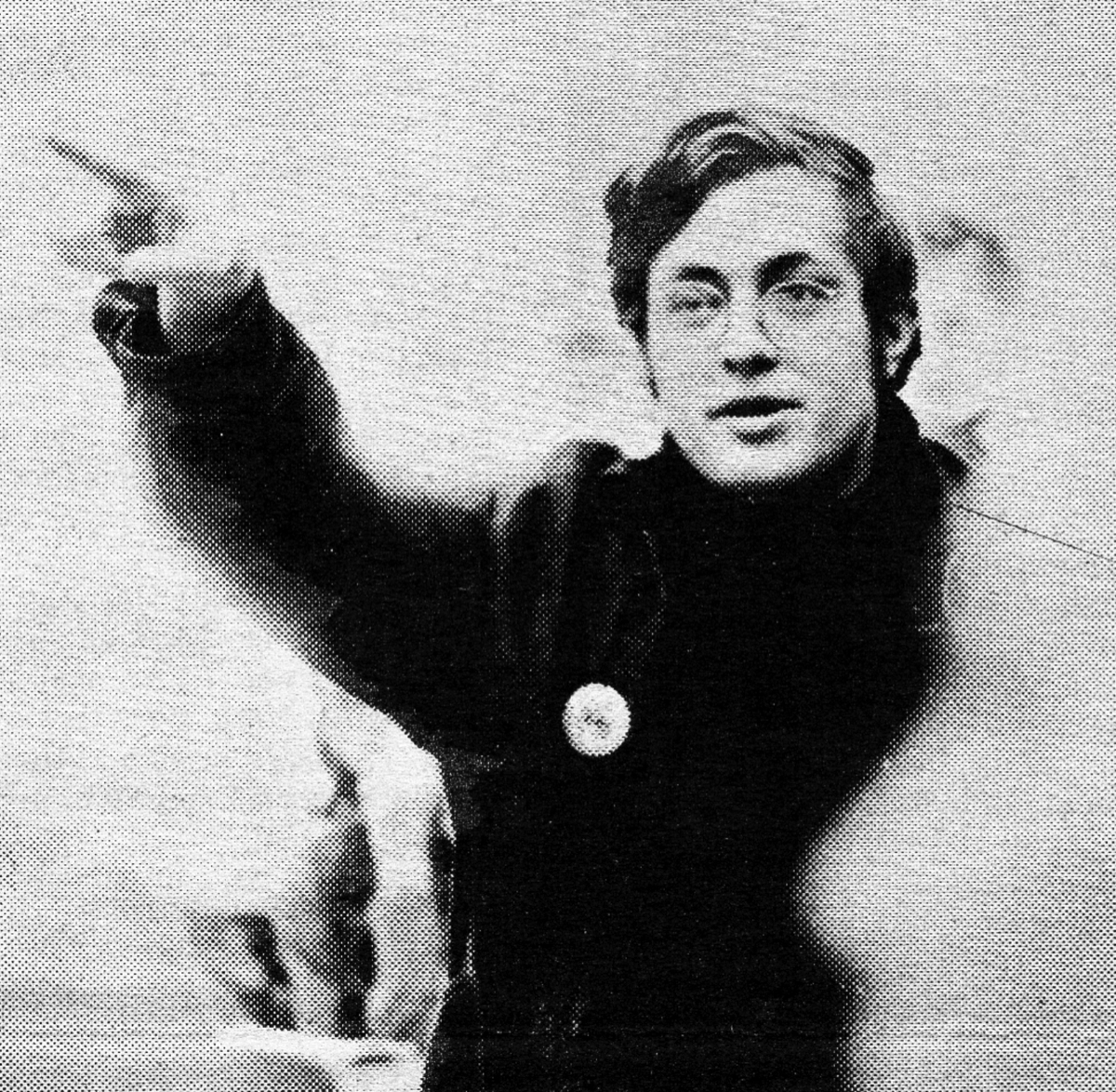
Activist David Pence returns to Ramsey and challenges school administrators
Meanwhile, the student newspaper at the U of M, the Minnesota Daily, was under attack by the University’s Board of Regents. In an editorial, Ramsey’s school paper supported the Daily and noted that while high school papers have known similar repression for years, Roseville school district administrators had not imposed censorship.
In the same issue, Blueprint satirized school papers shackled with censorship and filled with trivia in a one-page mock publication it called, “The School Blah.” The most vapid content in traditional school newspapers -- from tired editorials on school spirit to malicious gossip columns -- was highlighted. The send-up arguably strays into stereotypes and questionable taste in its story on “Suzy Schlock” and its cheeky subhead, “Deserving girl picked for vital position.” But the satire reinforces the message that times and school newspapers had changed — at least, at Ramsey.
In this issue
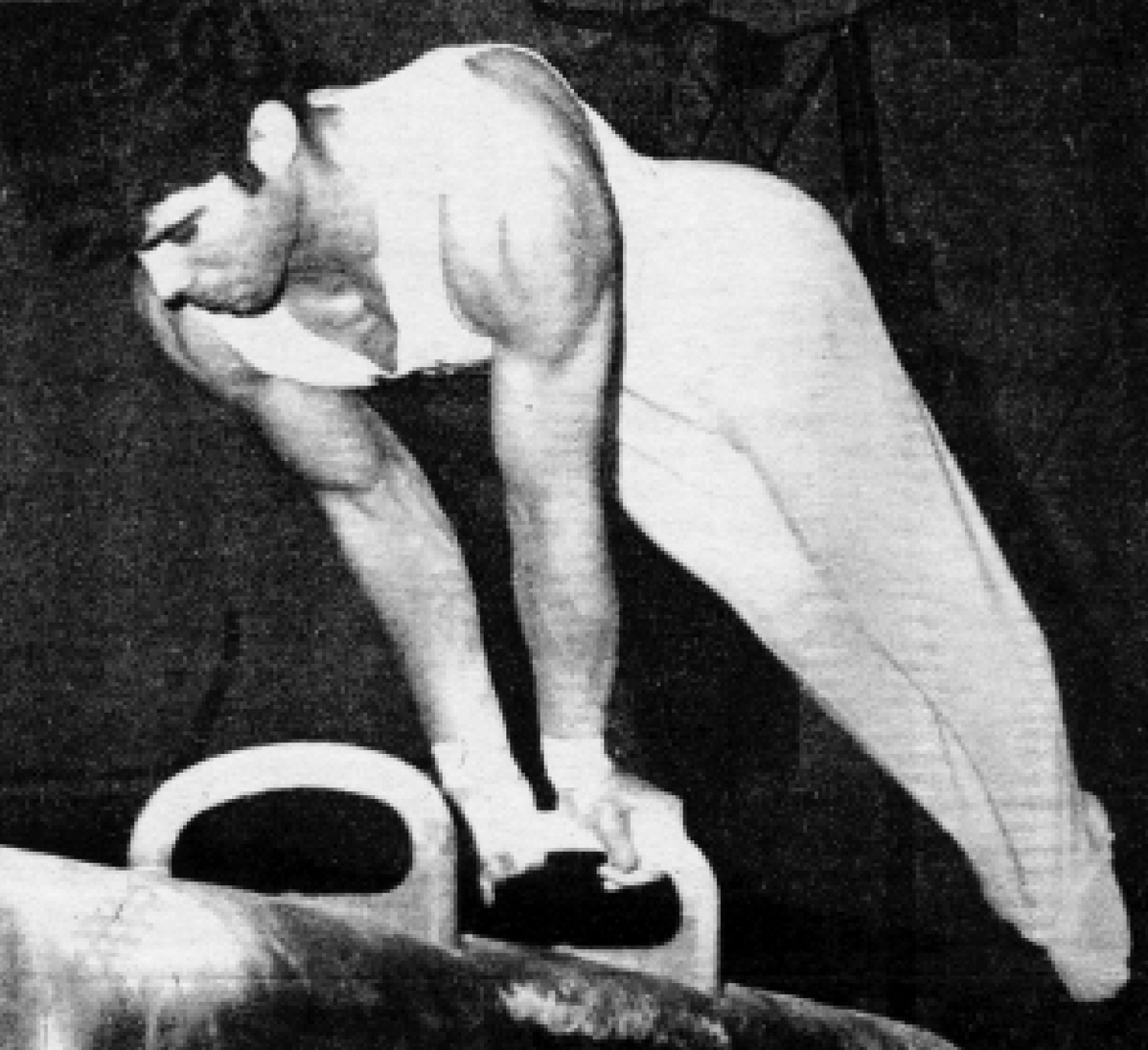
State champion senior Chris Olson on the side horse
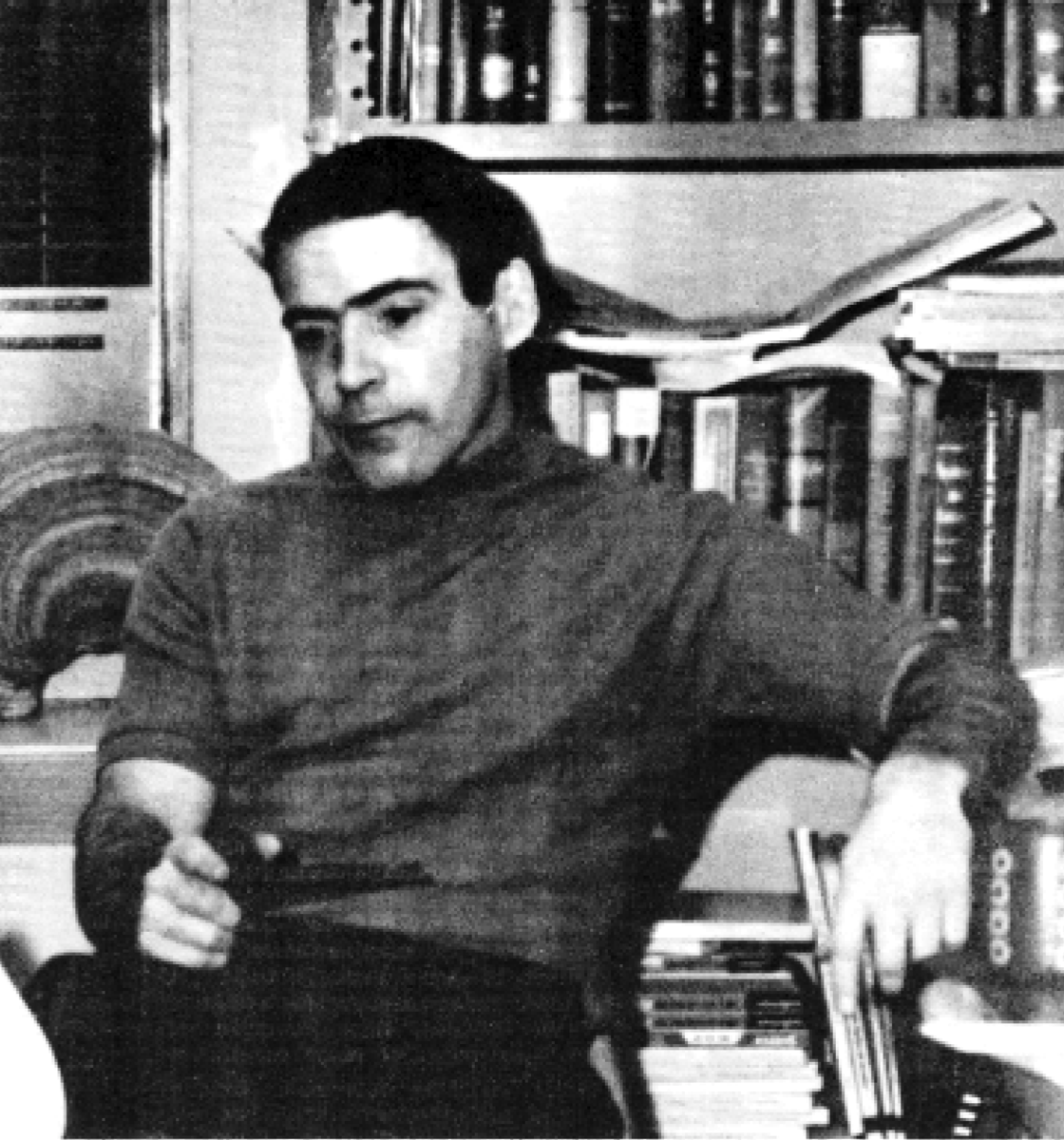
Mike Naylon, Director of Field Services for the Environmental Science Center, talks about pollution
| The Student and the Law (cover) | 1 |
| The right to think (editorial) | 2 |
| Council Conscience: A Review of Student Council activities | 2 |
| Minis languish | 2 |
| Holman's Heroes: The Restaurant Conspiracy | 2 |
| The School Blah: A Satire on High School publications | 3 |
| Deserving girl picked for vital position | 3 |
| Hero of the month | 3 |
| Bombers blast again | 3 |
| News briefs | 3 |
| Got the Gossip by Martha Malice | 3 |
| School Spirit (editorial) | 3 |
| Support BLAH (editorial) | 3 |
| BLAH publishes last issue; Useless gives comments | 3 |
| Pence to confront administration today | 4 |
| Exchange program started | 4 |
| Excuses, excuses, excuses | 4 |
| Pollution: A public hang-up | 5 |
| No Forum: Student co-operation needed | 5 |
| Lynn quits, needs time for music | 5 |
| Student editor takes: A ride with the Roseville police | 6 |
| MCLU lawyer speaks: Juvenile rights reviewed | 6 |
| Steven Jones and the cops | 6 |
| A ride with the Roseville police (cont.) | 7 |
| Stevens firing stuns Kennedy | 8 |
| What kind of a school is Kennedy? | 8 |
| Board decision causes fear | 8 |
| Marchers storm board meeting | 9 |
| Olson, Gymnasts head for State meet | 10 |
| Swimmers finish strong in state | 10 |
| P.J. sports column: Tourney notes | 11 |
| Grapplers reach the end | 11 |
| mcj: Dum-Dum-on-the-Stopp | 12 |
| Wanderer' aims for new style | 12 |
| BP gets Justo-Writer | 12 |
That week in March
- The Beatles release their final album, "Let it Be," in the UK (March 6).
- The "eclipse of the century" is covered by all three American networks (March 7).
- The U.S. Senate approves legislation to lower the voting age to 18 (March 12).
- A U.S. postal strike begins in New York City and spreads nationwide, shutting down the nation's mail system (March 18).
Quoteable Quotes

I think that many parents would object to having their children exposed to language of that type.
—Principal Curtis Johnson on a mini-course taught at Ramsey by activist David Pence
Anybody who doesn't like the language can go out in the halls and hear it four times worse.
—Activist David Pence

